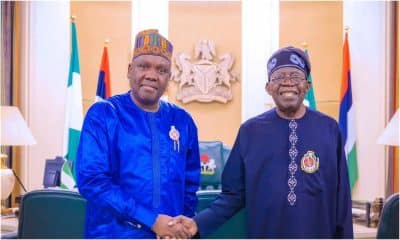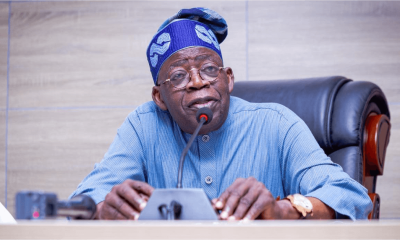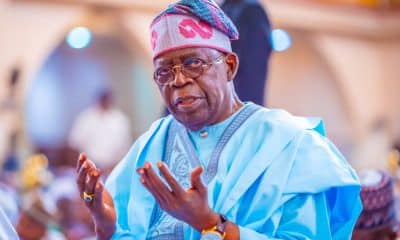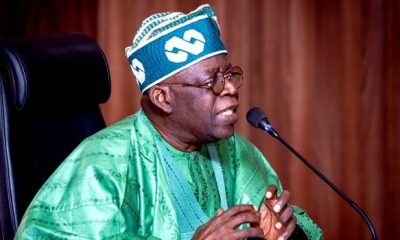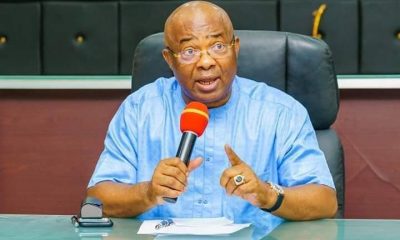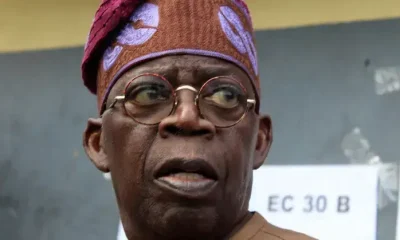Politics
2027: ‘APC Governors Pleaded With Buhari To Stop Malami, Nwajiuba, Others From Dumping Party’
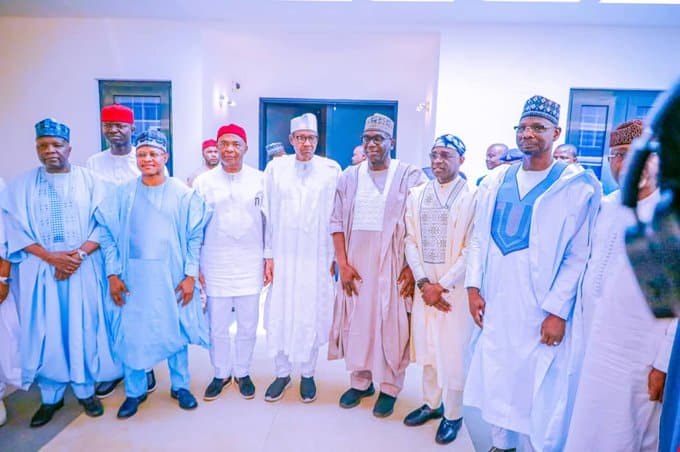
Fresh developments have emerged following the visit of state governors elected on the platform of the ruling All Progressives Congress (APC) to former President Muhammadu Buhari at his Kaduna residence on Monday.
The governors, led by the Governor of Imo State and Chairman of the All Progressives Governors Forum, Hope Uzodimma, held a closed-door meeting with Buhari, where they praised his achievements during his tenure.
Naija News reports that the APC governors expressed their appreciation for Buhari’s legacy, noting that his leadership laid a strong foundation for future development in Nigeria.
However, the visit, officially framed as a Sallah courtesy call, had an underlying purpose. According to sources close to the meeting who spoke with Vanguard, the governors also sought Buhari’s help in preventing his loyalists from defecting to the Social Democratic Party (SDP) ahead of the 2027 general election.
The governors’ concern arose from the growing speculation that key figures within the APC, particularly those from the defunct Congress for Progressive Change (CPC), the bloc that formed the backbone of Buhari’s political base were considering defection.
The CPC is seen as the largest faction within the APC, and the governors feared that the loss of this bloc could deal a significant blow to the party’s future prospects.
Reports indicate that former Kaduna State Governor, Nasir El-Rufai, was the first high-profile figure to defect, claiming that he had Buhari’s blessing to leave the APC for the SDP.
Other former ministers who served under Buhari, including former Minister of Justice and Attorney General of the Federation, Abubakar Malami (SAN), and former Minister of State for Education, Hon. Chukwuemeka Nwajiuba, were said to be planning to join the SDP as well.
The governors expressed concerns that the defection of prominent figures such as El-Rufai, Malami, and Nwajiuba could severely weaken the APC ahead of the 2027 elections.
They urged Buhari to speak to these figures, especially Nwajiuba and Malami, and advise them against leaving the APC.
Buhari’s Response And Speculation
However, sources revealed that Buhari appeared to distance himself from the situation, stating that individuals like Nwajiuba and Malami should have the freedom to make their own decisions regarding their political affiliations.
He reportedly declined to interfere with their choices, reflecting his longstanding stance of not imposing his political will on others.
While Buhari’s response may be seen as a reflection of his commitment to individual autonomy, it has sparked fresh speculation about the potential defections and their implications for the future of the APC.
This development comes at a crucial time for the party, which is already grappling with internal disagreements and external pressures as it prepares for the 2027 general election.
The APC has been dealing with internal conflicts, including disagreements over the selection process for its presidential candidate.
In 2022, the party’s National Working Committee (NWC) adopted indirect primaries to elect its presidential candidate, rejecting a consensus arrangement, which caused friction, particularly among those from the CPC faction.

